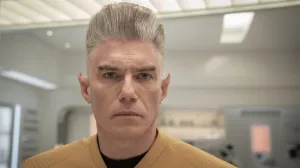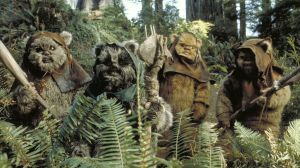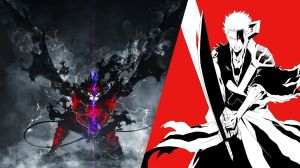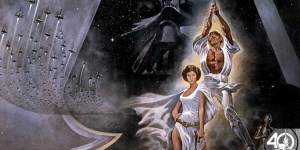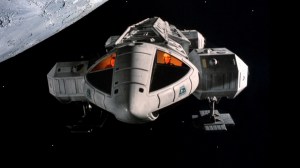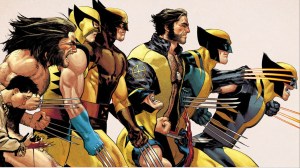Over three successful series, Star Trek: Strange New Worlds has proved it’s not afraid to include and celebrate some of the plentiful weird and wonderful Trek lore generated over 60 years throughout its storytelling. Leaning into its role as a kind of prequel series to The Original Series, with the events of TOS happening later in the timeline, Strange New Worlds has woven plenty of references, both direct and more obscure, into its episodes, much to the delight of hard-core fans on the lookout for name-drops and Easter eggs! Whether it’s Spock’s early romance with T’Pring, or callbacks to classic villains with the introduction of Christine’s new bae, Doctor Korby, the series often plays (admittedly, occasionally fast and loose) with the franchise’s history and canon while boldly carving its own identity.
Videos by ComicBook.com
By reaching back almost six decades to when The Original Series was quite the event of a Thursday evening (reportedly the only show Martin Luther King would let his children stay up to watch), Strange New Worlds does more than just honour Trek’s long legacy. Including classic characters and referencing storylines from TOS has meant SNW can often make us look back on TOS episodes with new appreciation, experiencing the famous adventures of Kirk and co through a new lens. But Season 3, Episode 9, of SNW may have just gone further than ever before, reframing one of Captain Kirk’s most iconic outings in a tragic new light.
An Unexpected Prelude
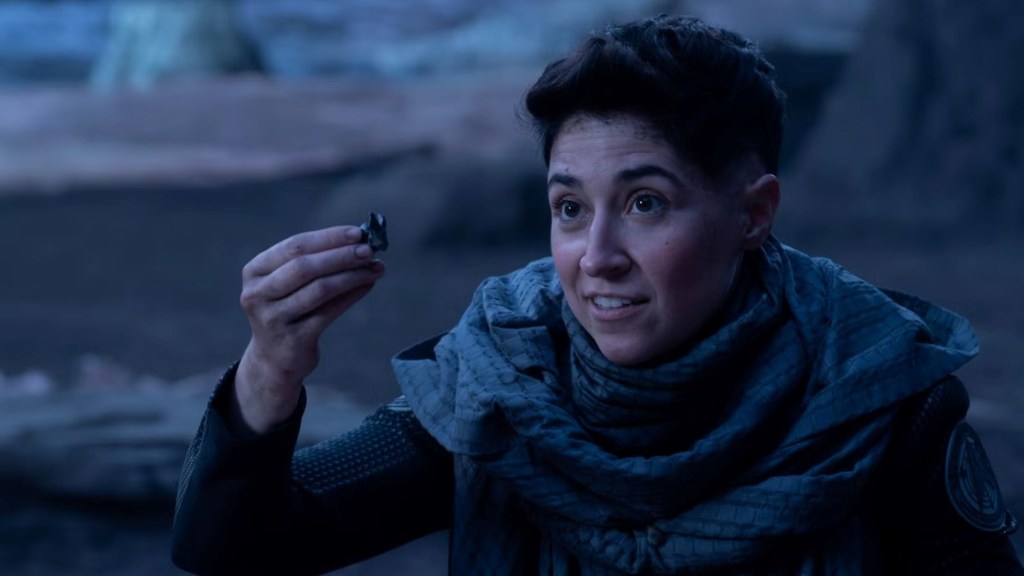
In “Terrarium,” Lt. Ortegas is unexpectedly sucked into a wormhole and only narrowly survives a shuttle crash onto a desolate moon. Finding herself stranded in an increasingly hostile environment, complete with what look to be flesh-eating giant centipedes as the local wildlife (fun), she is surprised to discover that a wounded Gorn pilot has also crash-landed nearby. Against all odds, the two form an uneasy alliance that blossoms into a genuine friendship. What begins as a nightmare scenario becomes a story of unexpected connection. Against every expectation — and despite Ortegas’ own fear of the Gorn given the history — the two manage to cooperate, protecting one another, patching up injuries and sharing food – even if ‘pit-monster sushi’ wasn’t exactly to Ortegas’s taste… Yep, the giant centipedes are on the menu… yum.
It’s perhaps one of the purest expressions of Star Trek’s central ethos — that even between sworn enemies, understanding is always possible, if you can only find something in common. In this case, the Gorn and Ortegas find common ground in that they are both pilots and that they both happen to be women. Nothing like a bit of girl power to get the job done – the sisterhood unite!
But beneath the survival-drama story about and classic Trek parable of empathy overcoming enmity, there’s actually something deeper going on. Amidst the chaos of crash landing and the panic of survival mode, Ortegas still has the instincts and wherewithal to notice strange twinkling lights in the sky and deduces that there might be other forces at play. What begins as a simple survival story becomes something far bigger, as the episode quietly begins to set up the events of a fan favourite Star Trek: The Original Series story.
The Return of the Metrons
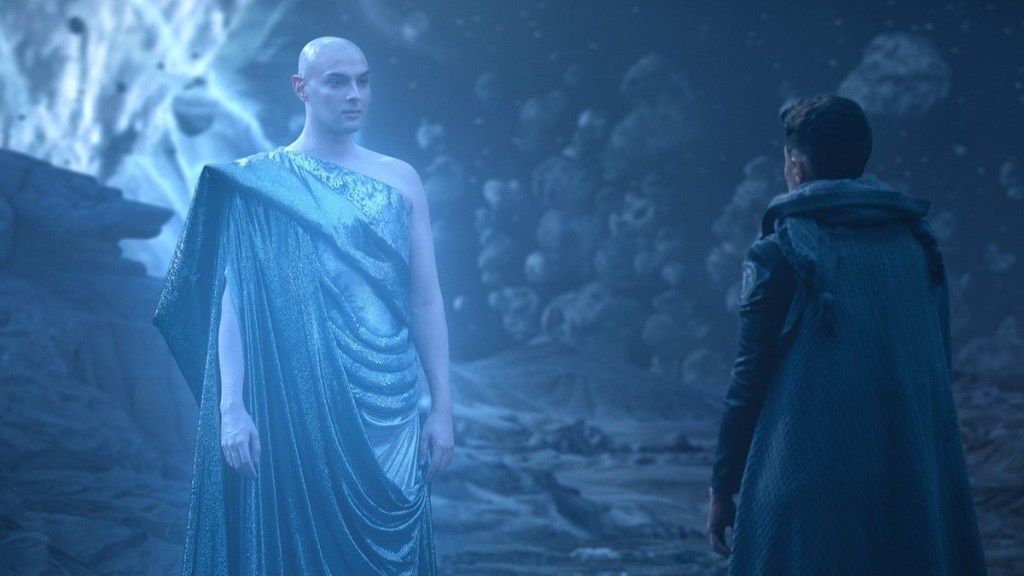
Hardcore Trek fans might have picked up early on that the episode bears striking similarities to a similar Trek tale in the 1967 episode “Arena.” This iconic instalment of TOS where Captain James T. Kirk battles an (admittedly rubbery) Gorn captain, introduced fans to the ‘Metrons,’ a mysterious species of ‘higher beings’ appearing in human form, who, it turned out were forcing Kirk and the Gorn captain to duel (threating the lives of their respective crews) as a test of humanity’s “barbarism.” Under the judgmental gaze of the godlike species, Kirk uses all his cunning and intellect to beat the Gorn, but still eventually shows his fellow captain mercy, prompting the Metrons to declare, “You are still half savage, but there is hope,” and recommend that humanity checks back in in say, 1,000 years’ time when they’ve evolved a bit (cheers guys, appreciate it…).
It’s no coincidence, then, that Ortegas’s ordeal is eventually revealed to have been engineered by the very same Metrons. In this sense, “Terrarium” isn’t just a nod to Trek history; it’s a direct prequel to one of the franchise’s most famous moments, as we learn that the events of “Terrarium” were another of their experiments — an earlier attempt to see whether Gorn and humans could coexist and to what extent humanity was ruled by barbarism. But the reveal that the Metrons orchestrated the Gorn and Ortegas’ crash landing does more than just set up the events of “Arena”; it reframes the entire episode. For a moment, it looked like Ortegas and her unlikely companion might have succeeded in impressing the Metrons and convincing them of humanity’s virtues. A Metron representative dressed in suitably Roman-esque attire, reveals to Ortegas that they were surprised — intrigued, even — by the co-operation they witnessed. Until tragedy struck.
A Devastating Twist
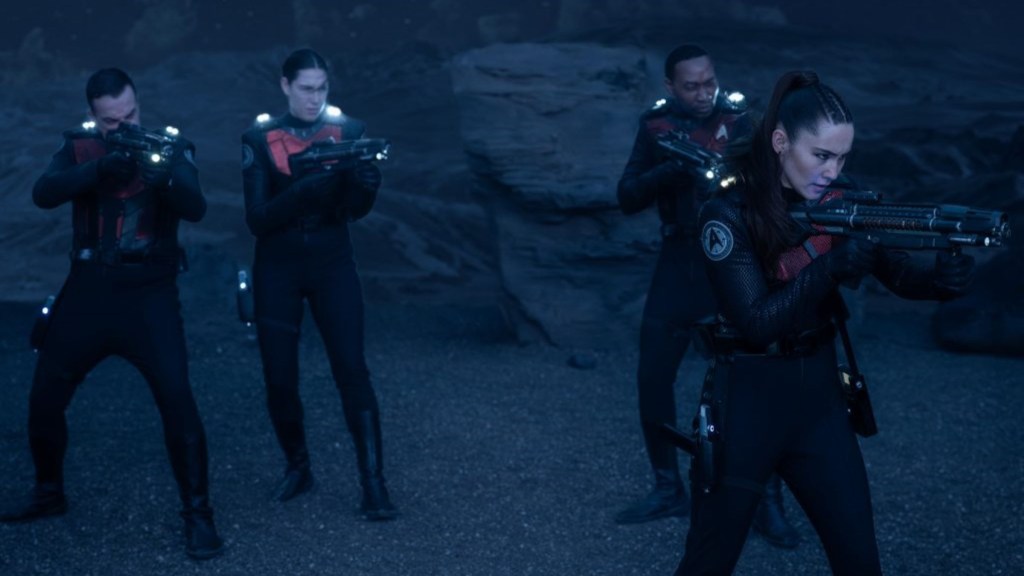
When La’an Noonien-Singh (Christina Chong) and the rescue team arrive for Ortegas and spot the Gorn, La’an sees only a monster. Traumatized by her own past encounters and acting on instinct, she kills the creature before Ortegas has a chance to explain. To her, it was an act of protection. To Ortegas, it was a heartbreaking loss. And to the Metrons, it may have been the definitive proof that humans weren’t ready. Just as Ortegas and the Gorn show coexistence is possible, La’an goes and proves (to the Metrons at least) that humanity can’t be trusted not to revert to violence.
It’s a devastating twist, by shooting the Gorn, La’an may have inadvertently set in motion the events of “Arena,” and in doing so, delayed humanity’s appointment with a higher being (even if said higher being doesn’t necessarily seem all that great to get to know). The Metrons explicitly note their “need for more data” about whether humans and Gorn can find peace. Instead of concluding that peace is possible, La’an’s action seemingly convinces them that more experimentation is required. Not that they really have the right to be experimenting with ‘less intelligent’ species (that’s a debate for another day!), but thanks to La’an, their test with Ortegas failed at the last hurdle. Their need for continued analysis may be exactly why they later pit Kirk and a Gorn captain against each other in a far more explicit and violent way on the doomed Cestus III.
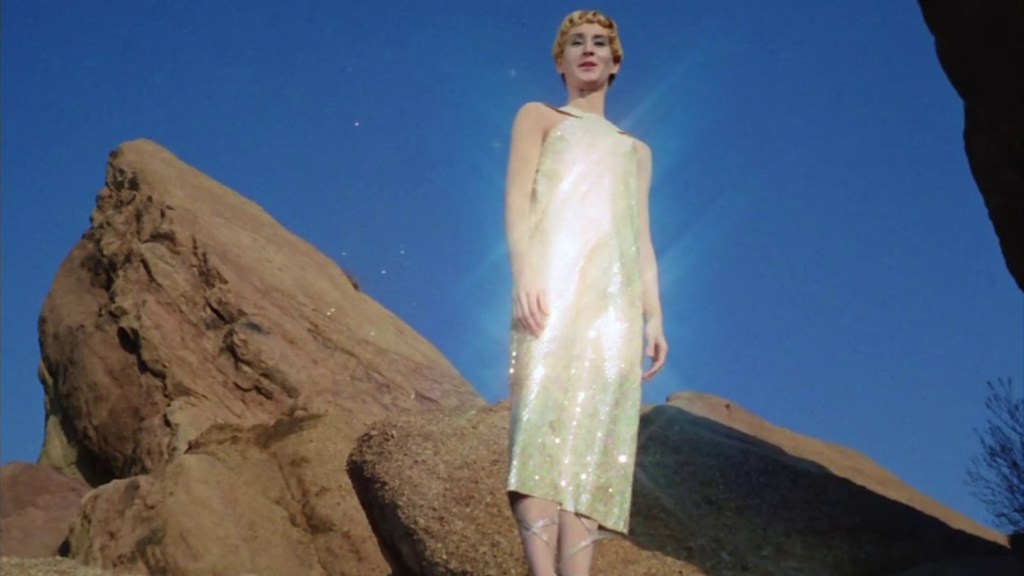
There’s a bitter irony at work here. Ortegas proved compassion was possible. She saw past the Gorn’s stubbly scales and really very fetching pair of fangs… finding a fellow pilot and a friend. That possibility of connection was real, and for one fleeting hour, it felt like the best of humanity had triumphed. But because La’an struck first, the Metrons’ experiment was left inconclusive. When Kirk eventually faces his Gorn opponent in “Arena,” he chooses mercy — perhaps finally passing the test that Ortegas very nearly aced.
We can’t really blame La’an for her decision: though rooted in trauma, it’s understandable in the heat of the moment, but that’s exactly what’s so tragic, that a simple moment of very human fear delays what might have been an early chance for peace. Arguably, this action by La’an even indirectly led to the destruction of the whole colony of Cestus III at the hands of the Metrons further down the line. Viewed through this lens, “Terrarium” becomes a tragic prelude: a story of what might have been, and how one tragic moment can change the future.
Trek Legacy & Connections at Their Best
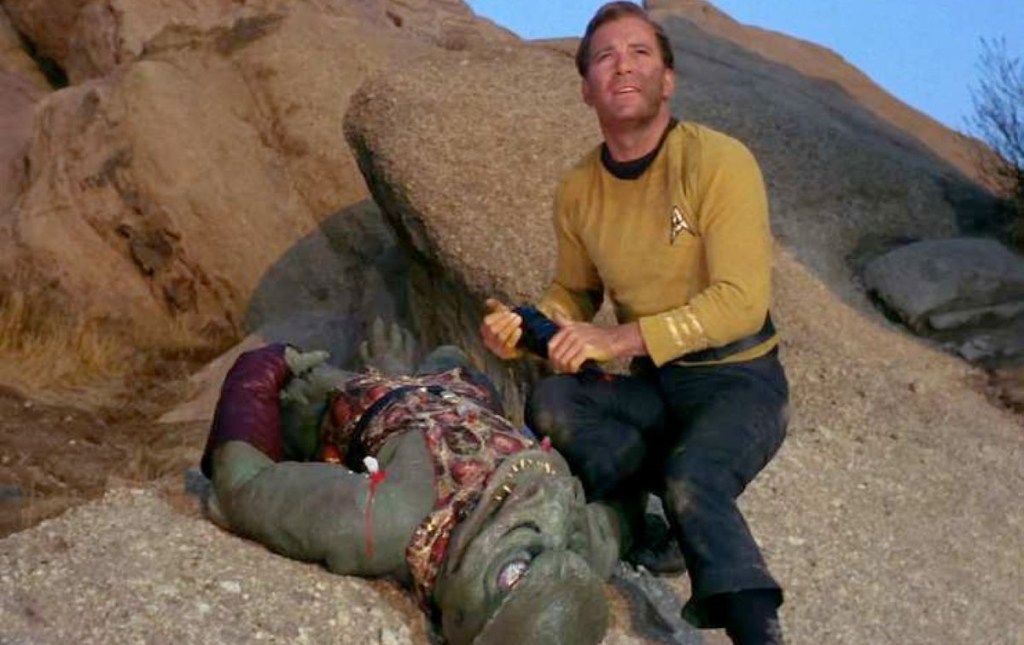
“Terrarium” succeeds because it doesn’t just recycle legacy Trek — it builds on and recontextualizes it. Knowing now that the Metrons had already tested humanity (and seen it fail), Kirk’s choice to spare the Gorn in “Arena” carries even more weight. He doesn’t just pass their test; he redeems a failure from the past. That kind of layering is where Strange New Worlds excels when it explores past canon. Instead of rewriting and overriding the classic episodes we love, it deepens and strengthens them. Admittedly, it doesn’t always get it right, with fans sometimes complaining about excessive changes to canon, particularly when it comes to Spock’s past, but “Terrarium” is one of those rare occasions where everything is wrapped up neatly with a bow on top. Ortegas’ tragic bond with the Gorn doesn’t diminish Kirk’s fight on Cestus III. It enriches it, suggesting the Metrons had been watching for much longer, and giving Kirk’s mercy even greater significance.
“Terrarium” is a great prelude to “Arena,” but it’s also much more than that. By tying Ortegas’ tragedy to Kirk’s future trial, Strange New Worlds has once again shown its knack for honouring Trek canon while adding new emotional depth. Sometimes, Star Trek’s greatest stories aren’t just about where we’re going — they’re about revisiting where we’ve been, and finding new meaning along the way.
Want to stay up to date on the biggest geek entertainment news? Add us as a preferred source in Google – HERE.

